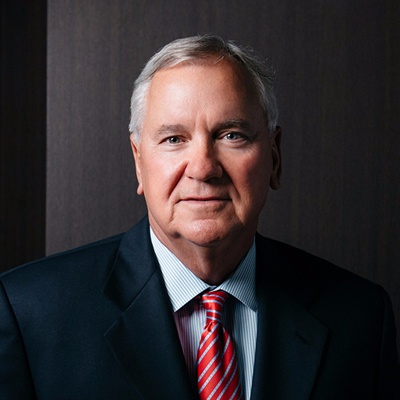
Written for EO by David Disiere, founder and CEO of QEO Insurance Group.
Mark Zuckerberg holds a degree from Harvard, yet he credits his business acumen to his side projects. He’s touting what science has proven: What happens in your off time can have a direct correlation to your professional performance.
My hobby is car collecting. I track down vintage, historically relevant European and mid-century automobiles. Although that might seem as far away from heading an insurance agency as Pluto is from the sun, it’s not. In fact, being a collector has taught me negotiating skills that I might not have otherwise learned in my day job.
You don’t simply wake up in the morning, decide to purchase a historic car, and have it in your driveway by the evening. It took 15 years for me to fill out and refine my collection, which now includes the 1962 Lincoln Continental “Bubbletop” limousine used by President John F. Kennedy and an award-winning 1948 Delahaye 135 M Faget-Varnet Cabriolet.
As you can imagine, acquiring these high-profile cars means you must be prepared before you go into the negotiations. You have to know the context of the car, the history, the market and the seller, as well as have an idea of predictions for possible reselling.
Maybe you don’t feel the way I do about autos that have a particularly unique lineage. You can still incorporate the lessons learned from my car collecting and your own hobbies into workplace negotiation situations.
1. Become an expert.
It’s not enough that I keep an eye on the vintage car market; I also have to know how to watch it. I have to recognize which signals mean that a seller might be ready to drop a price, when cars might be moved, or when owners might tighten their fists. Get comfortable with the variables in your field, and you’ll do yourself a favor at the negotiating table.
Your best weapon at the bargaining table is your deep knowledge. Know the field, as well as your strengths, weaknesses, and capabilities. Prepare for what can go awry. The greater your expertise level, the greater your chance at success.
Whatever perks your ears, hastens your footsteps and gives your psyche a jumpstart is your secret weapon when you negotiate.
2. Strategize what you want.
Consider your end game. What do you want the most out of this deal? It might be a Class K-2 Delahaye Postwar automobile, or it could be securing more support for your sales staff. Either way, you must do front-end work before you enter the negotiating space to determine your absolute must-haves and what you would be willing to walk away from, if necessary.
3. Ask for help.
Even if you’re at the top of your game, you can always use a mentor to answer questions. Look to other entrepreneurs you respect, especially those who aren’t involved in your field. When you need someone to bounce ideas off of, go to them for thoughtful suggestions based on their own experiences.
4. Accept nothing less than passion.
Don’t have passion for a negotiation? Find some way to connect to the stakes. Without genuine passion, it’s tough to keep going when bargaining gets difficult. Many times, I could have thrown up my hands in frustration and walked away from opportunities, but my passion kept me moving ahead. If you’re feeling disheartened by a tough negotiation, go back to your original mission to rediscover what initially excited you.
5. Pay it forward.
Leverage your success to help others move in positive directions, too. You’ll gradually become a sought-after leader, granting you increasing advantages every time you engage in negotiations. Once you’re a leader, your name recognition will go far.
Whatever perks your ears, hastens your footsteps, and gives your psyche a jumpstart is your secret weapon when you negotiate. Lean on what you learn during those rare off times antiquing, attending conventions, or browsing websites to become more well-versed in the art of a respectful handshake deal.
 David Disiere is the founder and CEO of QEO Insurance Group, an agency that provides commercial transportation insurance to clients throughout the U.S. He is a highly successful entrepreneur who has launched business endeavors in the real estate, oil and gas, agriculture, and automotive sectors. He is an avid collector of classic cars, rare art, first-edition books and Lalique hood ornaments. David is equally passionate about philanthropy, and he works to help underprivileged children through the David & Teresa Disiere Foundation.
David Disiere is the founder and CEO of QEO Insurance Group, an agency that provides commercial transportation insurance to clients throughout the U.S. He is a highly successful entrepreneur who has launched business endeavors in the real estate, oil and gas, agriculture, and automotive sectors. He is an avid collector of classic cars, rare art, first-edition books and Lalique hood ornaments. David is equally passionate about philanthropy, and he works to help underprivileged children through the David & Teresa Disiere Foundation.
Categories: Coaching general Lessons Learned Sales

